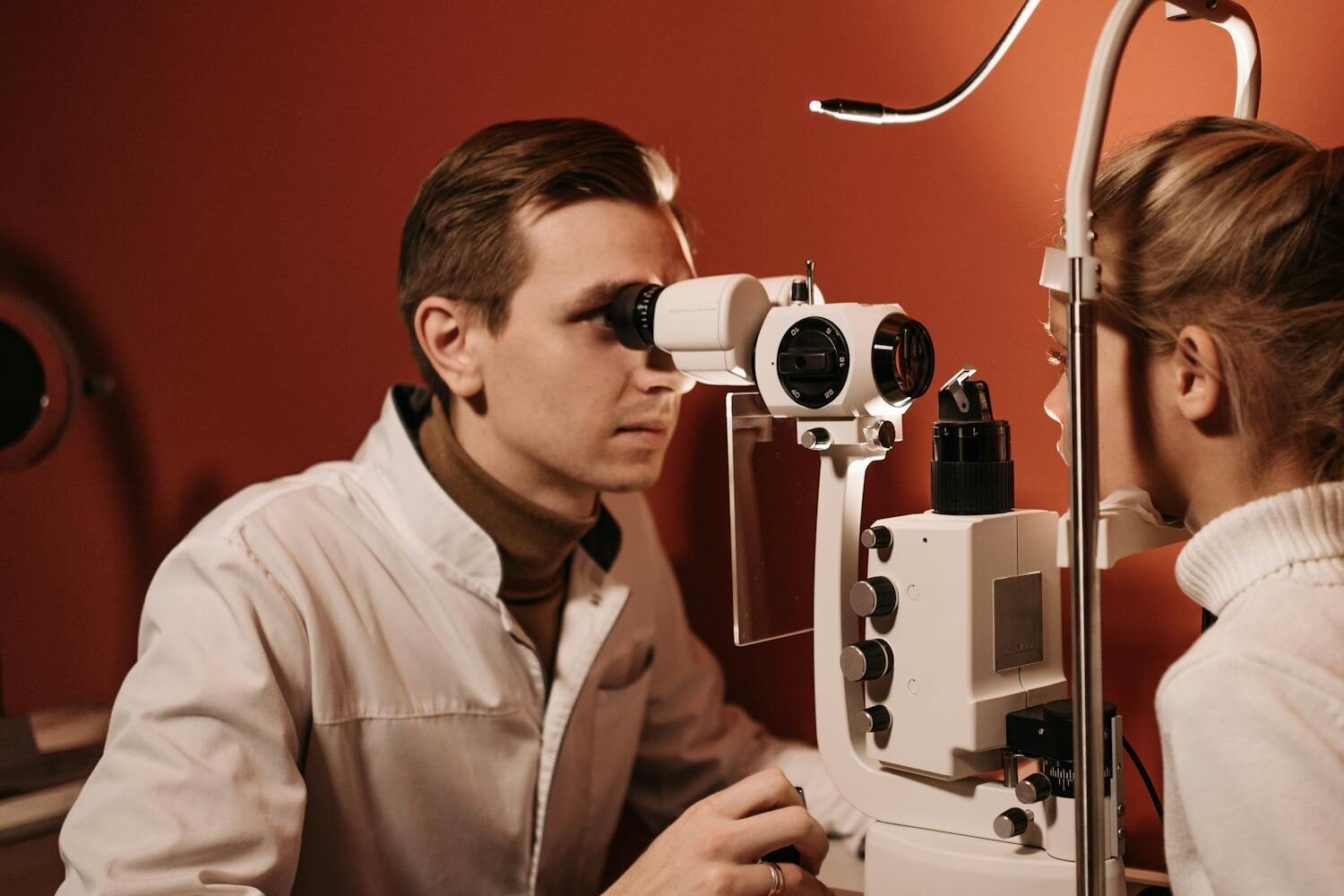In today’s fast-paced world, our eyes bear the brunt of long hours in front of screens, exposure to environmental pollutants, and the natural aging process. Amidst these challenges, maintaining optimal vision health is paramount, and a comprehensive eye exam stands as the cornerstone of this endeavor.
The Criticality of Eye Exams
A comprehensive eye test goes beyond just determining your prescription for eyeglasses or contact lenses. It’s a crucial evaluation of your eyes, offering insights into your overall health. Conditions like diabetes and hypertension can be detected early through an eye exam, making it not just about vision, but a vital health checkup.
The Hidden Benefits of Eye Examination
While most people understand the importance of regular eye examination for maintaining vision health, few are aware of the broader health insights these examinations can provide.
Beyond the primary goal of assessing your visual acuity and prescribing glasses or contacts, comprehensive examination of eyes serve as a window to your overall well-being. Surprisingly, a routine visit to the optometrist can reveal more than just eye-related issues; it can uncover early signs of more serious systemic health problems.
Conditions such as diabetes, high blood pressure, and even certain cardiovascular diseases can manifest symptoms in the eyes long before other parts of the body.
For instance, subtle changes in the blood vessels at the back of the eye may be the first clue to hypertension or diabetes. Moreover, such regular examinations can detect neurological issues and autoimmune diseases, providing an opportunity for early intervention and management.
To learn more about the 20 Surprising Health Problems, an Eye Examination can detect, visit the American Academy of Ophthalmology’s comprehensive guide.
Early Detection and Prevention
Regular eye check-ups can catch problems like glaucoma, macular degeneration, and cataracts in their nascent stages, facilitating interventions that can prevent vision loss or slow disease progression. This early detection is crucial, as many eye diseases are asymptomatic in the early stages.
Tailored to Your Needs
Each eye examination is tailored to the individual, taking into account their visual requirements, occupational needs, and lifestyle preferences. Whether it’s adjusting to digital screens or ensuring children’s eyes are developing correctly, a comprehensive eye exam provides the foundation for tailored vision solutions.
What to Expect During an Examination?
A comprehensive eye exam encompasses several tests to evaluate your vision and the health of your eyes. These include:
- Visual Acuity Test: This measures how well you see at various distances.
- Tonometry: A test that measures the pressure inside your eye, crucial for glaucoma detection.
- Dilation: By dilating your pupils, your eye care professional can examine your retina for signs of disease.
The Role of Technology
Advancements in technology have enhanced the eye tests process, enabling eye care professionals to provide more precise diagnoses and personalized care plans. Digital retinal imaging, for instance, allows for a deeper look at the health of your eyes, often without the need for dilation.
Frequency of Eye Exams
The frequency of eye exams can depend on several factors including age, health history, and risk factors for eye diseases. As a general guideline:
- Children should get an examination of their eyes done as early as 6 months of age, again at 3 years, and before starting school. Eyes check-up should be ideally conducted every two years unless directed otherwise by your eye care professional.
- Adults should have an check-ups every two years. Those over 60, or with risk factors for eye diseases, should have annual exams.
A Lifelong Commitment
Eye check-ups should be part of your routine health care regime at every stage of life. For adults, especially those over 40, regular exams are critical for detecting age-related eye conditions early.
The Cost of Neglect
Neglecting eye health can lead to irreversible damage and loss of vision. The cost of preventative eye exams far outweighs the emotional and financial cost of treating advanced eye diseases. Many eye diseases do not present symptoms until significant damage has occurred, underscoring the importance of regular check-ups.
To schedule an Eye Exam, Click Here
Preparing for Your Eye Exam
To make the most of your eye exam, come prepared:
- Know Your Family History: Some eye diseases are hereditary, so knowing your family’s health history can alert your doctor to potential risks.
- List Your Symptoms: Even if they seem unrelated, symptoms like frequent headaches or eye strain can provide valuable clues to your eye health.
- Current Prescription: Bring your current glasses or contact lenses to the exam.
Questions to Ask
Engaging with your eye care professional is key. Ask questions about your vision health and how you can protect it. Inquire about the frequency of exams, tips for eye health, and any concerns you have about vision changes.
The Impact of Lifestyle on Vision Health
Your daily habits and lifestyle choices have a significant impact on your vision health. Nutrition, exercise, and protective eyewear play crucial roles in maintaining eye health. A balanced diet rich in vitamins and minerals supports eye health, while regular exercise can reduce the risk of conditions like hypertension, which can affect your eyes.
Screen Time and Eye Health
In the digital age, eye strain from prolonged screen time is a growing concern. Taking regular breaks, using blue light filters, and following the 20-20-20 rule (every 20 minutes, look at something 20 feet away for at least 20 seconds) can help mitigate the effects of screen time on your eyes.
FAQs
How often should I get an eye exam?
- Most children and adults should get a comprehensive eye exam every one to two years. Individuals with a history of vision problems or those at risk for eye diseases may need more frequent exams .
What can I expect during an eye exam?
- During an eye exam, you can expect a review of your medical and vision history, followed by tests to evaluate your vision and eye health. These tests may include visual acuity tests, pressure tests for glaucoma, and a detailed examination of the internal and external structures of your eyes. The exam may last from half an hour to an hour .
Can an eye exam detect diseases?
- Yes, an eye exam can detect a variety of diseases, not just those related to the eyes. Conditions such as syphilis, herpes, HIV, and even diabetes can affect the eyes and may be identified during an exam. Eye exams can reveal signs of these conditions often before they show symptoms elsewhere in the body .
How do I prepare for an eye exam?
- To prepare for an eye exam, gather your medical and vision history, including any current prescriptions and glasses or contact lenses you use. Be ready to discuss any vision problems or health concerns. It’s also helpful to have a list of questions or concerns to discuss with your eye doctor during the visit.
Conclusion
A comprehensive eye exam is more than a routine check-up; it’s a critical investment in your overall health and quality of life. By detecting potential problems early, providing personalized care, and guiding you towards healthy






